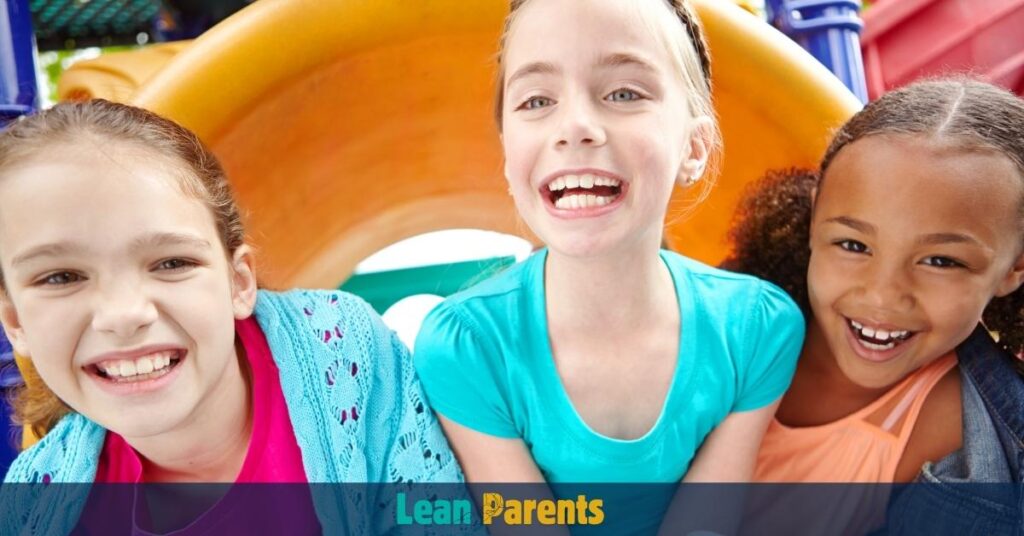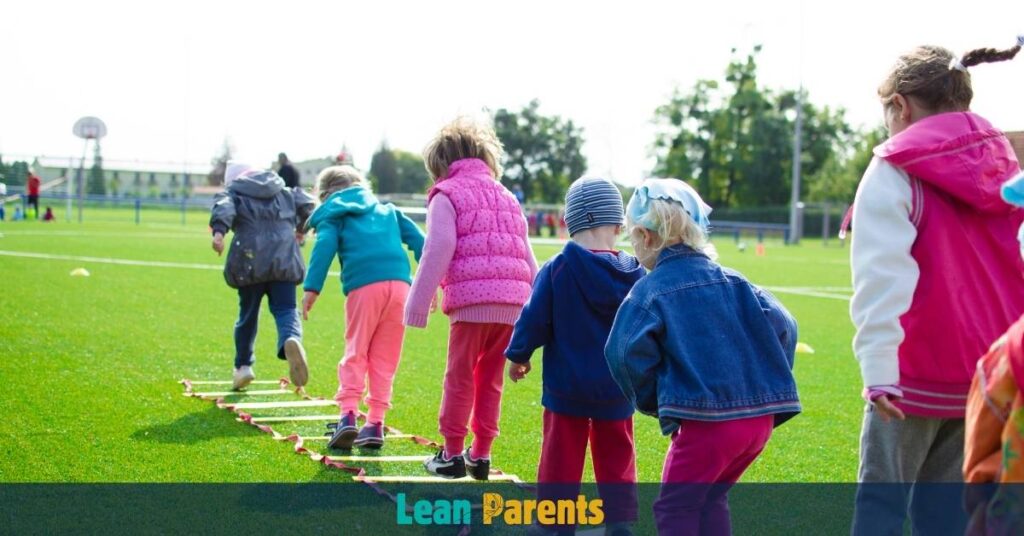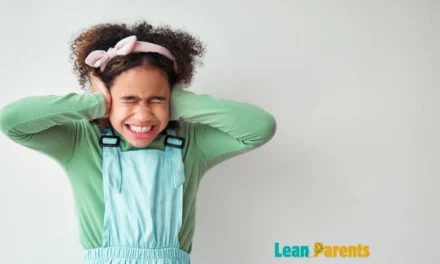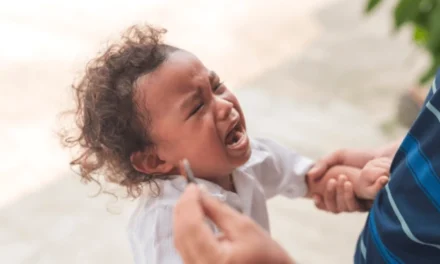As a parent, I’ve always believed that the friends our children make are very important. These friendships can shape their lives and well-being a lot. Positive relationships help people grow and stay happy and strong1.
Studies show that older adults with close friends live longer than those without1. It’s key for us, as parents, to help our kids make good friends early on.
In today’s world, where tech can make us feel alone, making real connections is vital2. Not having friends can be as bad as smoking or not exercising2. By supporting positive friendships, we help our kids build a strong future.
Key Takeaways
- Positive friendships contribute to overall health and well-being
- Building and maintaining close relationships takes time and effort
- Parents play a crucial role in guiding their children’s social development
- Finding common interests can help create lasting friendships
- Addressing challenges like shyness can improve social skills
Understanding the Foundation of Positive Friendships
Meaningful friendships are key to a happy life. In today’s world, knowing what makes a true friend is important. We learn to build strong friendships that support us emotionally and make our lives better.
Defining True Friendship in Modern Times
True friendship today goes beyond just knowing someone. It’s about trusting, respecting, and really understanding each other3. Friends who are smart about feelings, talk well, and work together have stronger bonds3.
The Psychology Behind Strong Social Bonds
Friendship psychology shows how important being emotionally smart, empathetic, and supportive is3. When friends understand each other’s feelings, they connect deeper3. Empathy helps friends bond more strongly.
Core Elements of Healthy Relationships
Healthy friendships have trust, good communication, teamwork, and support for each other’s dreams3. These things make friends feel valued and ready to grow together3.
| Core Elements of Healthy Friendships | Description |
|---|---|
| Trust | Relying on each other’s reliability, honesty, and faith in the relationship3. |
| Effective Communication | Clear expression, active listening, and openness to different perspectives3. |
| Collaborative Efforts | Working together, supporting each other, and tackling challenges as a team3. |
| Mutual Empowerment | Supporting each other’s goals, dreams, and growth to create an environment where both individuals can thrive3. |
| Inspiration | Encouraging personal growth, celebrating successes, and uplifting one another3. |
| Acceptance | Acknowledging and appreciating each other’s unique qualities without judgment3. |
By focusing on these key elements, we can create and keep friendships that are supportive and help us grow34.
“True friendship is a plant of slow growth, and must undergo and withstand the shocks of adversity before it is entitled to the appellation.”
– George Washington
Understanding the basics of positive friendships is key in today’s world. It helps us build relationships that give us emotional support, inspire us, and make us feel like we belong4.
The Impact of Friendships on Mental Health

Having strong social connections greatly affects mental health and overall well-being. Research shows that those with friends are less likely to feel depressed5. Also, people without friends or with poor friendships are twice as likely to die early5. Loneliness can even increase the risk of early death by up to 26%5.
Friendships play a huge role in emotional well-being. They bring comfort, joy, and support during tough times. Friendships can reduce stress, prevent loneliness, and improve health. This can lower the risk of depression, high blood pressure, and unhealthy weight6.
| Benefit of Friendships | Impact on Mental Health |
|---|---|
| Boosting happiness | Reduced stress and improved mood |
| Providing support during difficult times | Better coping with traumas like divorce or illness |
| Fostering self-confidence | Increased self-esteem and overall well-being |
Research shows that a few close friends are better for mental health than many online friends6. It’s important for friendships to be reciprocal, with both sides supporting and accepting each other6.
“Maintaining strong social connections can have a profound impact on an individual’s mental health and overall well-being.”
In recent years, social isolation and loneliness have become big concerns. In 2021, 12% of U.S. adults said they had no close friends, up from 3% in 19905. This is alarming, especially since school loneliness has risen in 36 of 37 countries since 20125. Mental health groups and schools are now focusing on helping people build healthy friendships.
Building Social Connections in Early Childhood
The preschool years are key for learning to interact well with others. This shows how important early social development is7. Children learn by watching adults, making it crucial to show empathy7.
Role of Parents in Social Development
Working with parents is vital for teaching empathy and social skills. It’s important to involve families in teaching children how to interact7. Games and playtime can teach children about cooperation and fairness7.
Creating Opportunities for Social Interaction
Friendships are essential for social and emotional growth. They help children learn to talk through different interactions8. Group play encourages children to work together and make friends7.
Activities like music classes and sports teams help children connect through shared interests8.
Supporting Shy Children in Making Friends
Role-playing is a fun way for children to practice social skills7. Helping children create conversation scripts can improve their social abilities8. Social-emotional learning tools offer extra support in early childhood8.
Friendship boosts self-esteem and confidence, leading to better emotional health8. Reading books about friendship and emotions helps foster empathy7.
Friendships teach children how to communicate and manage emotions, improving social intelligence8. Celebrating diversity helps children understand and respect differences7.
Friendships teach problem-solving and cooperation, essential for strong relationships8. The East Orange Center Development Corporation supports community and connection, showing a commitment to early childhood social development7.
Structured activities like card games and arts & crafts make playdates easier8. The Weighted Bean Bag Game promotes social interactions and cooperation8.
Benefits of Long-lasting Friendships
Keeping lifelong friendships can greatly help your personal growth and well-being. These friendships act as a strong social support network. They offer a sense of continuity and shared experiences throughout life9. Studies show that close friends can lower the risk of health issues like diabetes and heart attacks9.
Being socially isolated can increase your risk of death by 91%9. Long-lasting friendships are good for both your body and mind. They help reduce stress and improve your heart and immune system health9.
Teens with strong social support have lower stress levels and better brain function9. This shows how important these friendships are for our mental health.
Long friendships also help with personal growth and feeling like you belong. It’s more important to have a few close friends than many acquaintances9. Happy friends can make you happier, and having friends can help you recover from depression9.
Feeling part of a community can also reduce stress and anxiety9.
| Benefits of Long-lasting Friendships | Key Findings |
|---|---|
| Physical Health | |
| Mental and Emotional Well-being | |
| Personal Growth and Belonging |
In summary, long-lasting friendships offer many benefits. They improve your physical and mental health and help with personal growth. These connections are key to a happy and fulfilling life.
Encouraging Positive Friendships Through Activities

Building positive friendships in childhood is key for growing up well. Parents and teachers can help by getting kids involved in different activities. This way, they can make lasting friendships and improve their social skills10.
Structured Group Activities
Activities like team projects and games help kids learn to communicate and solve problems. They also get to find common interests and feel part of a community11.
Sports and Team Building Exercises
Sports and team activities teach kids to work together and trust each other. They learn the importance of being a good sport. This helps them build strong friendships11.
Creative Social Engagement Options
Music, drama, and art projects also help kids connect. They spark creativity and let kids express themselves. This makes it easier for them to bond with others11.
Offering a variety of activities helps kids grow and make friends. This approach is good for their happiness and social skills10. It’s a way to support their well-being and growth.
| Activity Type | Benefits | Examples |
|---|---|---|
| Structured Group Activities |
|
|
| Sports and Team Building Exercises |
|
|
| Creative Social Engagement Options |
|
|
Encouraging kids to join in group activities helps them grow socially and emotionally. This way can greatly improve their happiness and success10.
“Positive friendships not only enhance a child’s social and emotional development but also contribute to their overall well-being and academic success.”
Teaching Children Social Skills
Teaching social competence and interpersonal skills is key for kids’ growth and happiness. Empathy development, listening well, and talking clearly are vital for solving problems and making friends1213.
Parents and teachers are crucial in teaching these skills. By showing good behavior and giving kids chances to practice, they help kids learn to deal with social situations1314.
- Help kids understand and show empathy by using role-playing and stories13.
- Teach them to listen actively through games and activities that focus on eye contact and asking questions13.
- Teach them how to solve conflicts by using strategies like compromise and saying sorry13.
- Do group activities and team-building to help kids work together and build social skills13.
By teaching these important interpersonal skills, kids can make and keep good friends. They’ll feel more confident in social situations and grow emotionally121314.
| Social Skill | Strategies for Teaching | Benefits |
|---|---|---|
| Empathy | Role-playing, storytelling, perspective-taking exercises | Improved emotional intelligence, stronger relationships |
| Active Listening | Eye contact, paraphrasing, thoughtful questioning | Enhanced communication, deeper understanding |
| Conflict Resolution | Compromise, negotiation, effective apology | Constructive problem-solving, better conflict management |
| Cooperation | Collaborative group activities, team-building exercises | Increased social competence, stronger teamwork skills |
Teaching social skills is not the same for every child. It’s important to create a supportive space where they can learn and practice1213.
“Successful friendship depends on fundamental skills such as regulating negative emotions, understanding others’ emotions, showing sympathy, cooperation, negotiation, and apology skills.”
By always encouraging these social competence and interpersonal skills, we help kids make lasting connections. They’ll be better at handling social challenges and growing in school and life1314.
The Role of Communication in Friendship Building
Effective communication is key to building strong friendships. It involves active listening, expressing emotions well, and solving conflicts. These skills help deepen connections and overcome challenges in social circles.
Active Listening Skills
Becoming an active listener is vital for growing friendships. Regular communication is crucial for keeping friendships strong, as shown by studies.15 By showing genuine interest and asking thoughtful questions, you show you care. This strengthens the bond between friends.
Expressing Emotions Effectively
Being able to express emotions clearly is essential for emotional intelligence in friendships. Honesty and openness are important for lasting friendships, as research indicates.15 Sharing feelings and creating a safe space for open dialogue deepens understanding and connection.
Conflict Resolution Strategies
Handling conflicts in friendships needs a careful approach. Respecting boundaries is crucial, as studies show successful relationships do.15 Using strategies like active listening and open communication helps solve issues. This strengthens the friendship bond.
Mastering communication skills leads to meaningful, lasting friendships. These friendships enrich our lives and support our well-being.
Maintaining Healthy Boundaries in Friendships
Setting and respecting personal boundaries is key to strong friendships. Good friendships boost our mental health, making us happier and more confident16.
Talking openly and solving problems together can reduce stress in friendships. A study showed that discussing challenges with friends lowers stress hormones, showing the power of open conversation16.
- If friends don’t respect your boundaries, it’s okay to gently guide them. Sometimes, it’s best to decide if keeping the friendship is right16.
- Ignoring boundaries can cause stress, anxiety, and resentment. This shows how vital it is to have clear boundaries in friendships16.
- Good boundaries are clear, simple, and consistent. There are tips for starting conversations to set and share boundaries16.
- Respecting and supporting each other’s boundaries builds empathy and understanding. This makes friendships better16.
Long-lasting friendships need effort to keep them strong17. By setting and respecting personal boundaries, we can have more rewarding and lasting friendships. This improves our overall well-being16.
“Healthy boundaries in friendships are not walls; they are guidelines that help us navigate relationships with respect, self-care, and mutual understanding.”
Teaching about setting and respecting boundaries in friendships is becoming more common18. Learning about different types of boundaries helps us communicate our limits better. This leads to more balanced and rewarding friendships17.
Keeping healthy boundaries in friendships is about finding a balance between self-care, respect, and relationship balance16. By focusing on our well-being and being empathetic with our friends, we can build lasting and fulfilling connections17.
Digital Age Friendship Challenges
In today’s world, making friends is harder than ever. Online communication and social media19 have opened up new ways to connect. But, they also make it tough to keep up with friends in real life19.
Balancing Online and Offline Connections
Teens are great at using tech to stay in touch with friends. 79% of them text each other every day, and 72% hang out online19. But, too much screen time can leave some feeling lonely or left out19.
Social Media Impact on Relationships
Social media can make teens feel closer to friends. But, it can also make them feel left out or jealous19. It’s hard for teens to be real online, which can hurt their chances of making true friends19.
| Key Findings | Percentage |
|---|---|
| Boys are more likely than girls to make online friends | 61% of boys compared to 52% of girls19 |
| Older teens are more likely than younger teens to make online friends | 60% of teens ages 15 to 17 have met a friend online, compared with 51% of 13- to 14-year-olds19 |
| Social media sites are the most common spots for meeting friends online | 64% of teens who have made a friend online met someone via social media19 |
| Teens feel more connected to their friends through social media | 83% of teen social media users feel more connected to information about their friends’ lives19 |
| Teens believe people share too much information about themselves on social media | 88% of teen social media users19 |
By balancing positivity and boundaries in parenting, parents can guide their kids. They can help them deal with the ups and downs of digital friendships and online communication. This way, they can keep their real-life friendships strong too20.
“The key is to help children find the right balance, where they can enjoy the benefits of technology and social media while also prioritizing real-world relationships and activities.”
Supporting Friend-Making in Different Life Stages
Building adult friendships can be tough, but it’s doable with the right approach. You can make lasting connections at every life stage. Learn how to overcome obstacles and create rewarding friendships.
Work and family demands often get in the way of making friends as an adult21. Negative social interactions can stress you out and harm your health21. Try to plan regular meetups with friends, even if they’re short. Keeping in touch, even a little, is key to strong friendships.
Starting a new job or moving can make it hard to meet new people22. On average, Americans have just one close friend, making it crucial to care for your friendships22. Look for chances to meet others through work, hobbies, or community events. This way, you can build a network of friends.
As we get older, making friends can become even more challenging22. Psychologist Irene Levine, Ph.D., says good friendships are flexible and forgiving22. Therapist Miriam Kirmayer notes that older people tend to keep only their closest friends, showing how important these relationships are22. Sharing in each other’s happiness is key to keeping friendships strong, showing true support and care22.
Knowing the challenges and chances for friendship at each life stage helps you grow your social circle. This way, you can enjoy the benefits of deep, lasting friendships all your life.
Creating Safe Spaces for Social Development
Creating inclusive environments and supportive systems is key for positive friendships and healthy growth. Experts say schools, community programs, and family life greatly impact a child’s social skills and connections.
School Environment
Schools are vital in making safe spaces for kids to grow socially23. They help by encouraging open speech, problem-solving, and empathy. This reduces defensiveness and helps kids bond with peers23.
By valuing everyone’s views and teaching respect, schools empower kids to talk openly and constructively23.
Community Programs
Community programs add to the support kids and families get24. Groups and programs, like those by JCFS Chicago, teach important social skills24. They help kids with special needs or unique family situations build self-esteem and friendships24.
Family Settings
The family setting is crucial for a child’s social skills and relationships25. A child’s trust and self-esteem grow with a caring adult’s presence25. But, neglect or abuse can harm a child’s ability to form healthy relationships later25.
By making spaces inclusive, supporting social systems, and focusing on family and community, we help kids make positive friendships and grow socially.
| Factors that Promote Positive Friendships | Factors that Hinder Positive Friendships |
|---|---|
|
|
“Having a variety of social relationships may help reduce stress and heart-related risks25. Strong social ties are linked to a longer life25.”
By creating inclusive spaces, supporting social systems, and strengthening family and community ties, we help kids form positive friendships and grow socially232425.
Recognizing and Addressing Toxic Friendships
Friendships can be complex, and it’s key to spot toxic ones. Toxic friendships show up as constant negativity, lack of support, and manipulation. These can really hurt your emotional health26. It’s important to think about how these friendships affect your mind26.
When dealing with a toxic friend, setting clear limits is crucial. Cutting down on contact can help lessen the harm26. Getting support from loved ones or experts can offer new views and ways to handle these tough situations26. Making choices that respect yourself and your feelings is key to keeping good friendships26.
Learning from bad friendships helps you understand your limits and what to watch out for26. Building friendships that make you feel good is vital for a healthy social life27. Taking care of yourself and setting boundaries is important for a balanced life26.
FAQ
What are the key components of genuine friendships in today’s society?
How do positive friendships impact mental health and well-being?
What is the role of parents in fostering social connections in children?
What are the benefits of maintaining long-term friendships throughout life?
What strategies can be used to teach children essential social skills?
How can communication enhance friendship building and maintenance?
Why is it important to establish and respect boundaries in friendships?
What are the unique challenges and opportunities of friendships in the digital age?
How can safe and supportive environments foster positive social development?
How can one recognize and address toxic friendships?
Source Links
- The health benefits of good friends
- Making Good Friends – HelpGuide.org
- Friendship Foundation: Building Strong, Lasting Connections
- The Power of Friendship | JED
- The science of friendship
- Psychological Benefits of Friendship
- Building Social Skills in Preschoolers: Strategies for Encouraging Friendship and Empathy
- Encouraging Friendships and Healthy Social Interactions
- 6 Benefits of Friends: Why It’s so Important to Keep in Touch
- KNOW! to Promote Healthy Friendships for Young People
- Encouraging Friendships and Healthy Social Interactions
- Kids Who Need a Little Help to Make Friends – Child Mind Institute
- Help kids make friends: 12 evidence-based tips
- Social Skills 101: How To Help Your Child Make Friends
- How to Maintain Friendships
- How to Set Boundaries With Friends—and Why It’s Necessary
- How to Set Healthy Boundaries With Friends — Talkspace
- Teaching Kids About Healthy Friendships and Friendship Boundaries – The Responsive Counselor
- Teens, Technology and Friendships
- Friendship in the Digital Age: Implications from a Philosophy of Communication Approach
- Friendships change, but how do we handle it?
- When Your Friends Are in Different Stages of Life Than You – Talkspace
- Creating Safe Spaces for Communication
- The Importance of Friendship from Early Childhood to Adolescence
- Building Social Bonds
- Recognizing Toxic Friendships: Identifying and Addressing Unhealthy Dynamics
- Toxic Friendship: 24 Signs, Effects, and Tips





